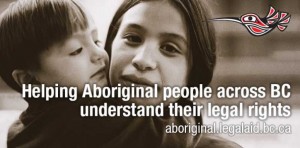Online Dispute Resolution in British Columbia
Intro | Part 1 | Part 2 | Part 3a | Part 3b
The increase in number of self-represented litigants has created need for justice reform. The cost and time associated with bringing an action to court has urged the BC Government to re-examine the justice system and to take a closer look at needs and requirements of people looking to resolve disputes.

A BC Judges report (p. 19) in 2010 showed that 90% of Small Claims parties are self-represented; it can take up to 16 months (p. 27) for a small claims case to be heard. At the higher court level, less than 3% (p. 90) of BC Supreme Court civil cases ever make it to trial. These barriers form ongoing frustrations for the public trying to navigate a daunting court system on their own with limited resources.
Online Dispute Resolution (ODR) is an online platform that allows parties in a dispute the chance to come together online either in real time or at each party’s convenience to negotiate, reach an agreement and avoid going to court. Other jurisdictions, such as the UK Judiciary, have examined ODR. BC is also looking at merging modern technology with the traditional court system to resolve disputes.
The government established the Civil Resolution Tribunal (CRT) in 2012 with the idea to increase access to justice. As as a new part of BC’s justice system, they are building from the ground up and expect to have it working later this year. The concept envisions an online dispute platform that can be accessed by the parties 24 hours a day, seven days a week. Primary focus will be on small claims matters and strata property disputes. The CRT builds on lessons gleaned from a number of pilot projects tested previously in BC.
In 2011 the BC Ministry of Justice started testing ODR, with initial focus on tenancy and consumer disputes. Participation was voluntary. The case volumes were low but results proved encouraging in terms of resolution and user satisfaction.
Today in BC, ODR experimenting continues with organisations such as Consumer Protection BC, BC Property Assessment Appeal Board and Small Claims BC. Mediate BC tested ODR for family matters.
Legal Services Society’s upcoming MyLawBC may give future consideration to the ODR platform: “The MyLawBC platform…could be expanded to include online mediation and arbitration services.”
A future blog post will give a glimpse into how ODR is utilized by Consumer Protection BC and Small Claims BC. We tested their dispute resolution tools and will walk you through the processes. To be continued…
Update 05/13/2015: See Case Study #1 on Consumer Protection BC’s ODR platform here.
Photo Credit: Freepik
 Food, shelter and clothing: these are the basic necessities that directly impact our quality of life. Meeting basic needs can be a challenge on reservations. If you live on reserve and are struggling to pay for food, shelter and clothing you can apply for social assistance.
Food, shelter and clothing: these are the basic necessities that directly impact our quality of life. Meeting basic needs can be a challenge on reservations. If you live on reserve and are struggling to pay for food, shelter and clothing you can apply for social assistance.
